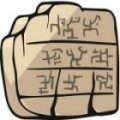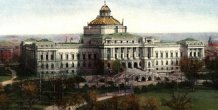
Worksheets and No Prep Teaching Resources
Reading Comprehension Worksheets
History of Books and Writing
Library Activities and Library Cards

History of Books and Writing
| edHelper's suggested reading level: | grades 9 to 12 | |
| Flesch-Kincaid grade level: | 8.05 |
|
Libraries:The Memory of Mankind
By Colleen Messina |

|
 1 If you traveled back in time with your library card, hoping to check out some ancient books, you would discover that libraries were quite different long ago. Books were rare and valuable, and no librarians encouraged you to take them home. In fact, you would get in trouble if you did!
1 If you traveled back in time with your library card, hoping to check out some ancient books, you would discover that libraries were quite different long ago. Books were rare and valuable, and no librarians encouraged you to take them home. In fact, you would get in trouble if you did! |
Create Weekly Reading Books
Prepare for an entire week at once! |
| Leave your feedback on Libraries:The Memory of Mankind (use this link if you found an error in the story) |
 |
History of Books and Writing
|
 |
Library Activities and Library Cards
|
 |
High School Reading Comprehensions and High School Reading Lessons
|
 |
Social Studies
|